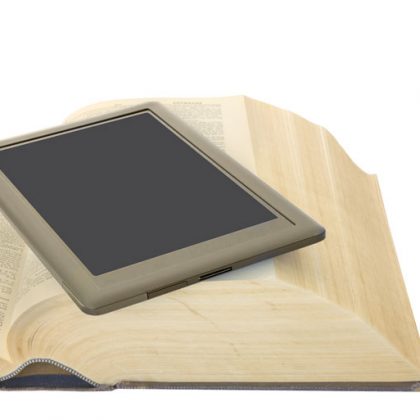CUP – Skibidi, delulu, tradwife are new words in the Cambridge Dictionary
How does a word earn its place in the dictionary?
The Cambridge Dictionary has just welcomed a handful of internet-famous slang terms into its pages. Among the latest additions are skibidi (a slangy way of saying “cool” or “bad,” popularized by the viral Skibidi Toilet YouTube series), delulu (short for “delusional”), and tradwife (a “traditional wife,” or a woman who embraces conventional gender roles).
Adding words to dictionaries is nothing new. New entries are added every year. In the past twelve months alone, the Cambridge Dictionary has welcomed more than 6,000 words. But not every new term makes the cut. Slang, which is often fleeting, frequently doesn’t survive the dictionary vetting process. Lexicographers, experts who compile dictionaries, closely monitor how words are used in books, newspapers, and online. In the case of skibidi, delulu, and tradwife, it was clear that these words showed staying power. They illustrate how language evolves through social media and pop culture, with internet culture increasingly shaping English.
Conversely, words can also be removed from the dictionary when they fall out of use. Obsolete examples include younker, once a term for a young person, and snollygoster, used for an unscrupulous politician. This process also applies to more recent language. Vitamin G, the former name for riboflavin, and hodad, a 1960s term for a surfer poseur, have likewise been retired. Like the decision to add a word, removal is not taken lightly, it involves a careful review of a word’s usage and popularity. But it’s important to remember that a word’s absence from a particular dictionary doesn’t make it any less real or valid. Many archaic or obsolete terms still appear online or in larger, unabridged dictionaries.
Lexicographers don’t just track new words, they also review and update existing definitions. Over time, words can change in spelling, grammar, and, crucially, in meaning and usage. A notable example occurred during a 2012 parliamentary speech in Australia, when Prime Minister Julia Gillard labeled the opposition leader a “misogynist” for his repeated use of sexist language. Gillard was celebrated by feminists, though critics argued she had misapplied the term. In response to the public debate, the Macquarie Dictionary, Australia’s leading dictionary, recognized that misogyny is now often used as a synonym for “sexism.” Its modern definition emphasizes “entrenched prejudice against women” rather than a pathological hatred. The dictionary subsequently updated its entry to reflect this contemporary usage.
Existing definitions may also be updated for clarity. In the course of my research for Bitch: The Journey of a Word, I found that, until the 1990s, dictionary entries for the noun bitch as a slur did not carry any label indicating its offensiveness. Lexicographer Kory Stamper highlighted this oversight, and from then on, dictionary entries for the word were marked as offensive, derogatory, disparaging, or vulgar.
In the end, language is far from static, it is alive, flexible, and constantly evolving. Lexicographers must remain vigilant, continually adapting as words shift, emerge, and fade in meaning and usage.
Dr. Karen Stollznow is the author of On the Offensive: Prejudice in Language Past and Present, and her latest book for CUP is Bitch: The Journey of a Word.







